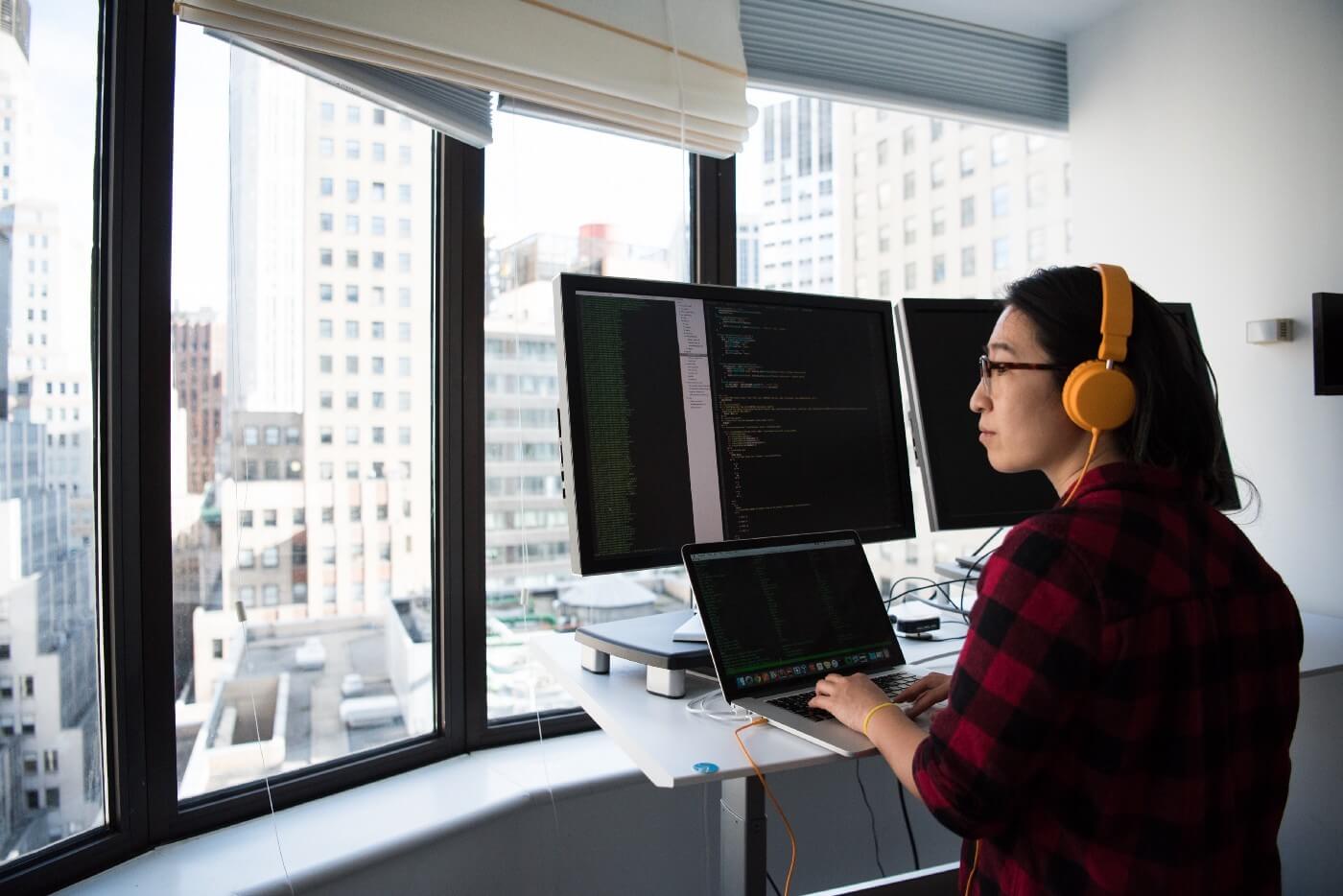今日推薦開源項目:《learngo》
今日推薦英文原文:《Does Listening To Music Influence Software Development?》

今日推薦開源項目:《learngo》傳送門:GitHub鏈接
推薦理由:該項目包含 Go 語言的課程,練習和測試。
Go(又稱Golang)是Google開發的一種靜態強類型、編譯型、並髮型,並具有垃圾回收功能的編程語言。它是一種經過精心設計的實用性語言,簡潔易學。
今日推薦英文原文:《Does Listening To Music Influence Software Development?》作者:Rachel Zane
原文鏈接:https://medium.com/@mdln/does-listening-to-music-influence-software-development-42e95ffa28b7
推薦理由:學習工作時自帶BGM
Does Listening To Music Influence Software Development?
Let』s discuss about how listening to music at work can positively affect us while writing code or doing repetitive tasks.

(Photo by Eric Nopanen on Unsplash)There is no secret that listening to music makes us happy, more relaxed and significantly improves our overall mood. It seems that music has such a positive effect that the researchers at Stanford University have confirmed that
『Listening to music seems to be able to change brain functioning to the same extent as medication』.Research also showed that listening to music on headphones reduces stress and anxiety and can be a good way to relieve depression and increase self-esteem.
To go back to the main topic of this article, I would like us to focus on how music can influence the way software engineers write code. As a starting point, I have read 「The Sound of Software Development」, a research study by Laura Barton, Gulipek Candan, Thomas Fritz, Thomas Zimmermann and Gail C. Murphy, that focuses on the music listening effects among software engineers and it would be beneficial to describe some of their main findings in this article.
What do related studies say about the effect of music?
One study shows that cyclists worked harder and biked for a longer distance when they were listening to faster music, as the tempo directly influenced their pedalling. Also, for activities such as running, music can help regulate your rhythm and give signals to your brain when your body should move.『During repetitive, endurance-type activities, self-selected, motivational, and stimulative music has been shown to enhance effect, reduce ratings of perceived exertion, improve energy efficiency and lead to increased work output』.But, when it comes to work, studies have shown mixed results regarding the positive trend suggesting that music is beneficial to work performance. Most of the studies focused on whether music can influence a particular activity, without deepening the understanding of whether listening to music an entire day can make it easier to complete your everyday tasks. Mainly, previous work showed that the effect of music listening is considerably affected by a variety of factors, such as personal preferences, personal traits and task type.
Why do software engineers listen to music?

(Photo by Lee Campbell on Unsplash)Nowadays, the majority of software engineers work in open-floor offices, due to the lack of space. In such environments, it gets easy to get disrupted by noise. Thus, it is highly probable to use headphones and start listening to music, podcasts, documentaries, etc. Most of the times engineers choose music, as you don』t have to fully pay attention to it and it helps you get disconnected from your surroundings.
How many software engineers are actually listening to music at work?
Citing the previously mentioned study, between 63% and 88.2% of the engineers that participated in the survey admitted that they enjoy listening to music at work at least some of the time. Also, it seems that music is more popular among younger developers, especially those under 32 years of age. Up to 91.7% of the young developers reported that they listen to music while coding. Of course, in the case of developers that have a private office, music is less popular compared with the case of those who shared an office space (83.8% vs 89.4%).To listen or not to listen to music at work
Participants from the study stated their reasons regarding why they are listening to music and, in order of popularity, the results are as follows:- 「cuts down background noise」 — 70.9%
- 「lifts my mood」 — 61.4%
- 「increases my focus」 — 56.2%
- 「reduces distractions」 — 55.2%
- 「relaxes me」 — 54.6%
- 「makes me more energetic」 — 48.3%
- 「motivates me」 — 48.1%
- 「improves my productivity」 — 44.6%
- 「signals coworkers to not disturb me」 — 22.6%
- 「increases the quality of my work」 — 18.8%
- 「gives me a sense of control over my aural environment」—16.2%.
Music is a good way to increase the focus of the software engineers at work, while giving a subtle signal to their coworkers to not disturb them.

(Photo by Christina @ wocintechchat.com on Unsplash)Participants from the study also stated their reasons regarding why they are not listening to music and, in order of popularity, the results are as follows:
- 「can』t concentrate/distracts me」 — 65.8%
- 「decreases my productivity」 — 39.8%
- 「reduces the quality of my work」 — 26.5%
- 「I have too many interruptions」 — 26.5%
- 「too much overhead」 — 19.6%
- 「I』m in too many meetings』 — 13.9%
- 「it is not allowed at my work」 — 12.0%
- 「indicates to coworkers that I』m available」 — 7.5%
- 「lowers my mood」—1.9%.

(Photo by bruce mars on Unsplash)As expected, many of those who enjoy listening to music say that music is a good way to lift their mood and make them more energetic. I would add here that this aspect is highly influenced by the type of music you listen, as there are two main categories of music people enjoy while doing repetitive tasks:
- music that can increase their mood
- music that is mostly instrumental to eliminate background noise.
What activities are accompanied by music at work?
Among the most popular activities, there are:- Writing code — 85.5%
- Repetitive tasks — 76.8%
- Building code — 64.7%
- Testing code — 60.2%
- Writing documentation — 48.7%
- Debugging — 45.4%
- Email — 32.3%
- Management tasks — 29.5%
- Code reviews — 25.7%
- Program understanding — 25.6%
- Multitasking — 23.9%
- Learning — 19.9%
- Memorisation — 14.4%.
Conclusion
Based on the mentioned study, listening to music is indeed a common practice and it can have a positive impact, considering different aspects such as personal traits, music preference, etc. But, in the end, we should remember what the researchers stated:『It is inconclusive whether listening to music directly improves coders』 productivity, although the two are generally correlated』.Hope this was a pleasant article and I encourage you again to read the full study here.
Thank you for reading and have a nice day ?
下載開源日報APP:https://openingsource.org/2579/
加入我們:https://openingsource.org/about/join/
關注我們:https://openingsource.org/about/love/
